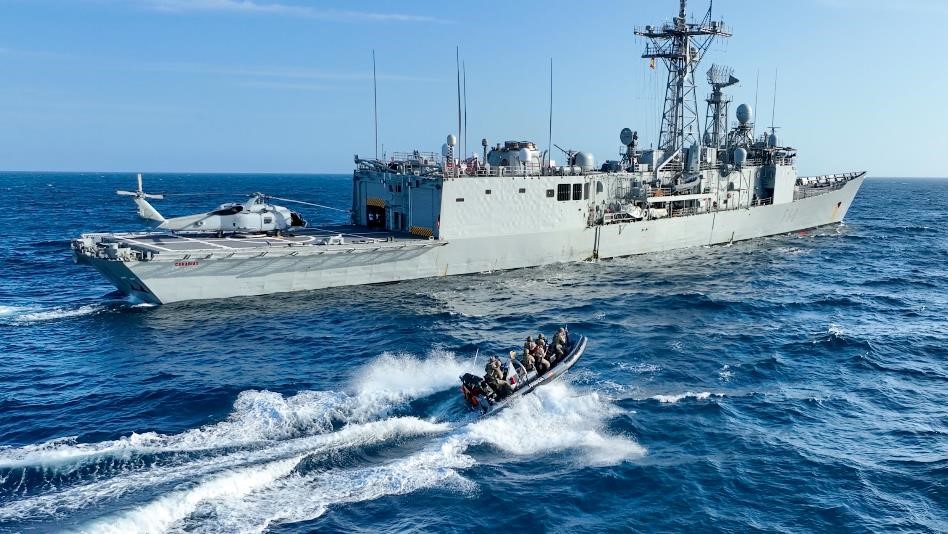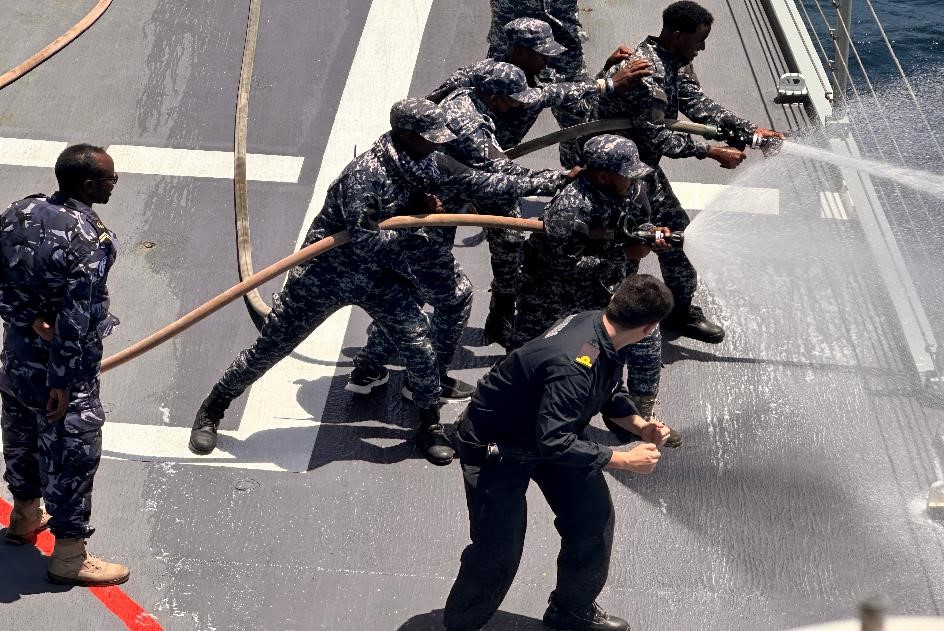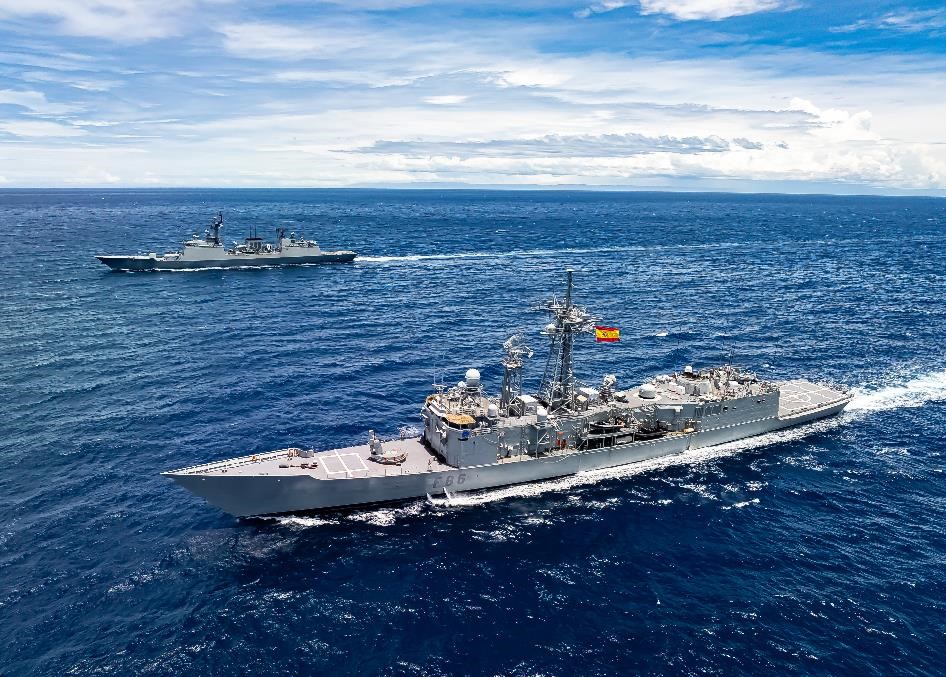
The frigate 'Canarias' ends its longest patrol in which it has taken part in numerous activities
- Deployed in Operation Atalanta, the Navy frigate has spent 13 days at sea without stopping over at any port.
Deployed in Operation Atalanta, the Navy frigate has spent 13 days at sea without stopping over at any port.
After leaving the port of Mombasa, Kenya, on 23 April, the 'Canarias' began a patrol in the waters of the Indian Ocean with the intention of intercepting any attempt at piracy in the area, and carrying out a series of planned activities.
On April 30, off the coast of Mogadishu, in Somalia, she participated in a demonstration of capabilities with the Italian ship 'Federico Martinengo', which serves as command ship of Operation 'Atalanta'. During the demonstration, the special naval warfare force team embarked on board the frigate 'Canarias', it simulated an opposed boarding which was witnessed by numerous civilian and military authorities from the Italian ship, including the President of the Federal Government of Somalia.
In addition, personnel from the ‘Canarias’ conducted training sessions for Somali coastguard personnel in Mogadishu. The aim is for Somalia to become increasingly capable of dealing with the maritime security challenges that plague its waters. Personnel from the ‘Canarias’ gave practical lessons related to ship inspection tasks, fire and flood fighting on board, first aid and procedures for abandoning a ship in an emergency.
The day of 1 May was marked by the visit of Italian Admiral Francesco Saladino, who is currently in command of the force deployed in Operation Atalanta. During his visit, he acknowledged the work carried out by the ship's crew, in particular for the work carried out during the monitoring of the release of the hijacked merchant ship ‘Abdullan’. Thanks to the information provided by the ‘Canarias’, the Puntland police have been able to arrest some of the alleged pirates who attacked the merchant ship.
The Spanish frigate and the South Korean ship ROKS DAEJOYEONG met at sea. The commanders of both units took advantage of the occasion to hold a meeting on board the ‘Canarias’, strengthen ties and maintain collaboration in such a wide area of operations. Futhermore, drills were carried out where both ships coordinated tactical movements for training purposes.
A few days later, in waters close to Djibouti, the Spanish frigate, representing EUNAVFOR ATALANTA, took part in the ‘Personnel Recovery-Bullshark’ drill together with US Army and Navy assets and the Djibouti Coast Guard.
The ‘Canarias’ conducted a ‘Personal Recovery’ drill, designed to recover casualties in case of an accident at sea. This drill involves a great deal of coordination between the SH60-F helicopter and the special naval warfare force team, both embarked on board the frigate for the mission.
Besides, the drill was monitored at all times from high altitudes with ‘Shadow’, the Scan Eagle UAV of the 11th Airborne Squadron, which allows this type of action to be tracked without being detected.
It should be noted that the duration of a patrol at sea of these characteristics usually averages 8 or 9 days, and on this occasion the frigate ‘Canarias’ has spent 13 days at sea.
Fotos




